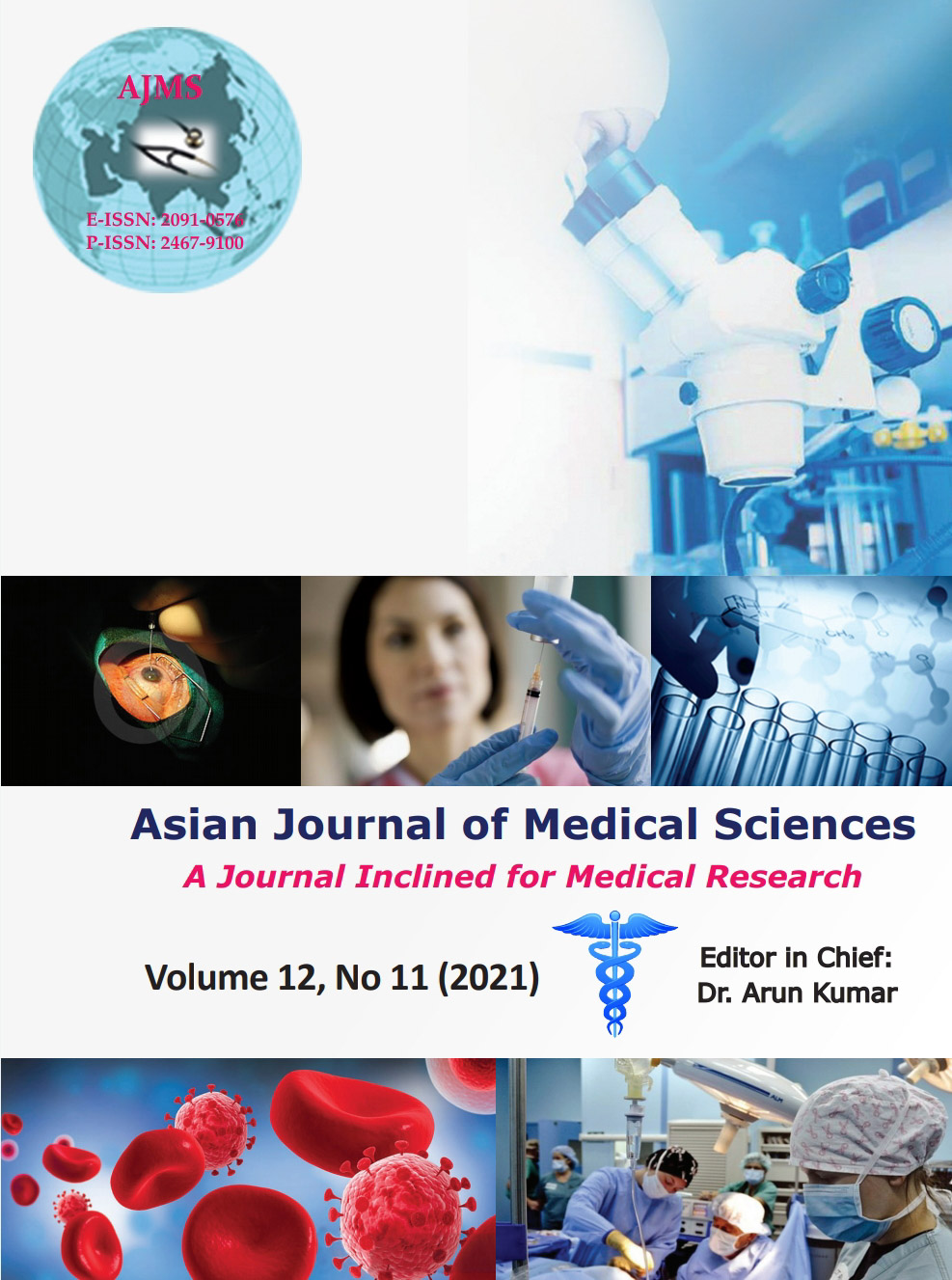Change in cigarette dependence among a cohort of smokers following COVID-19 diagnosis in Kashmir valley: An observational follow-up study
Keywords:
COVID-19, Fagerstrom test, Follow-up, Nicotine dependenceAbstract
Background: COVID-19 diagnosis should serve as an impetus for smokers to discontinue its use. The study was conducted to estimate the change in cigarette dependence among newly diagnosed COVID-19 cases.
Aims and Objectives: COVID-19 diagnosis should serve as an impetus for smokers to discontinue its use. The study was conducted to estimate change in cigarette dependence among newly diagnosed COVID-19 cases.
Materials and Methods: Study was conducted between October and December 2020 and newly diagnosed male COVID-19 patients who were current smokers at diagnosis were recruited from two hospitals involved in testing and treatment of COVID-19. Baseline socioclinical information was recorded at diagnosis in addition to the estimation of cigarette dependence using Fagerstrom Test for Nicotine Dependence (FTND) and health status using Post-COVID-19 Functional Scale (PCFS). Follow-up was done at 2 weeks after recovery using both FTND and PCFS scales. Wilcoxon signed-rank test, paired t-test, and ANOVA were used for univariate analysis and multivariate regression was done.
Results: A total of 171 subjects with mean age of 43.79 years were included in the study. FTND scores decreased significantly from the day of diagnosis to follow-up visit with 79% of subjects reporting a decrease. On univariate analysis, decrease in FTND had a significant association with presence of comorbidity, any symptoms, presence of respiratory symptoms, and if supplemental oxygen was administered. On multivariate analysis, symptomatic COVID-19 disease, higher age, PCFS at baseline, and PCFS at follow-up had a significant association with decreased PCFS values at follow-up.
Conclusion: COVID-19 diagnosis was followed by significant decrease in FTND score, particularly for symptomatic and older subjects. Post-COVID follow-up visits should be used asan opportunity by health providers to ensure its sustainability and for achieving cessation.
Downloads
Downloads
Published
How to Cite
Issue
Section
License
Copyright (c) 2021 Asian Journal of Medical Sciences

This work is licensed under a Creative Commons Attribution-NonCommercial 4.0 International License.
Authors who publish with this journal agree to the following terms:
- The journal holds copyright and publishes the work under a Creative Commons CC-BY-NC license that permits use, distribution and reprduction in any medium, provided the original work is properly cited and is not used for commercial purposes. The journal should be recognised as the original publisher of this work.
- Authors are able to enter into separate, additional contractual arrangements for the non-exclusive distribution of the journal's published version of the work (e.g., post it to an institutional repository or publish it in a book), with an acknowledgement of its initial publication in this journal.
- Authors are permitted and encouraged to post their work online (e.g., in institutional repositories or on their website) prior to and during the submission process, as it can lead to productive exchanges, as well as earlier and greater citation of published work (See The Effect of Open Access).




